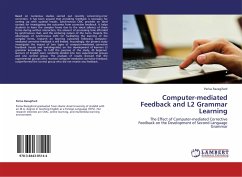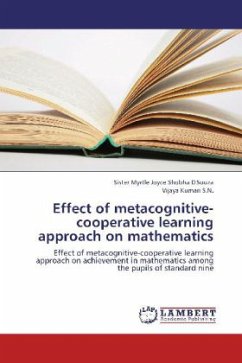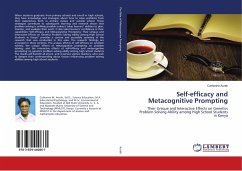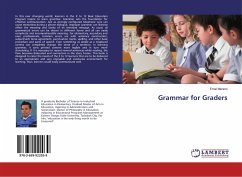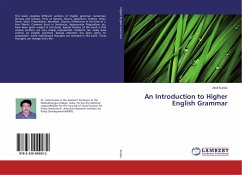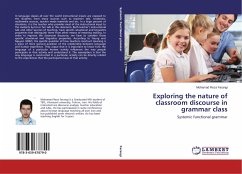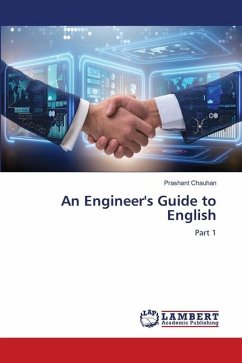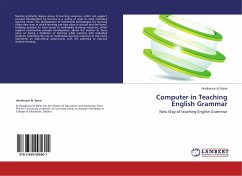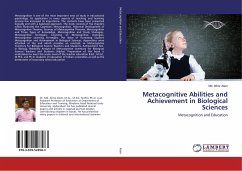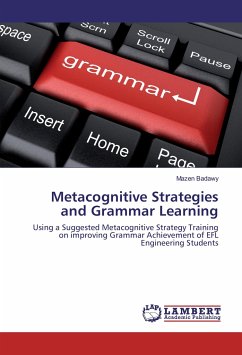
Metacognitive Strategies and Grammar Learning
Using a Suggested Metacognitive Strategy Training on improving Grammar Achievement of EFL Engineering Students
Versandkostenfrei!
Versandfertig in 6-10 Tagen
39,99 €
inkl. MwSt.

PAYBACK Punkte
20 °P sammeln!
This study investigated the effect of a suggested metacognitive strategy training on improving grammar achievement of engineering students. The subjects of the study were 66 preparatory year engineering students divided into two groups , an experimental (n=31) and a control (n=35). Both groups studied some grammatical structures included in the syllabus assigned for a technical English course. Only the experimental group was trained by the selected metacognitive strategies (thinking aloud, metacognitive scaffolding and self-questioning) in combination with the cognitive ones(inductive and dedu...
This study investigated the effect of a suggested metacognitive strategy training on improving grammar achievement of engineering students. The subjects of the study were 66 preparatory year engineering students divided into two groups , an experimental (n=31) and a control (n=35). Both groups studied some grammatical structures included in the syllabus assigned for a technical English course. Only the experimental group was trained by the selected metacognitive strategies (thinking aloud, metacognitive scaffolding and self-questioning) in combination with the cognitive ones(inductive and deductive), while the control group studied grammar through the cognitive grammar teaching strategies. The t-test for comparing the two groups. Results obtained showed significant differences between the two groups on the grammar achievement test in favor of the experimental one. Besides, the metacognitive strategy questionnaire revealed better metacognitive strategy use as for the experimental group. The study recommended using a combination of cognitive and metacognitive strategy for EFL pedagogical practices in the Egyptian context.



